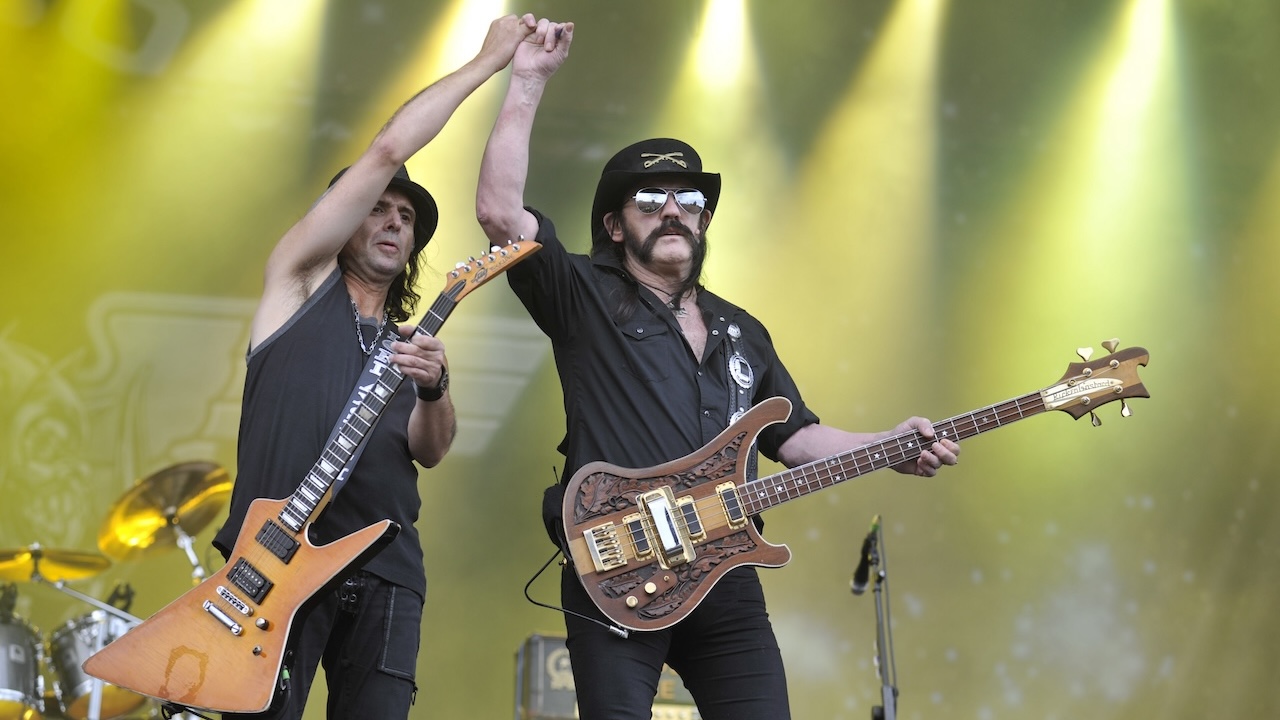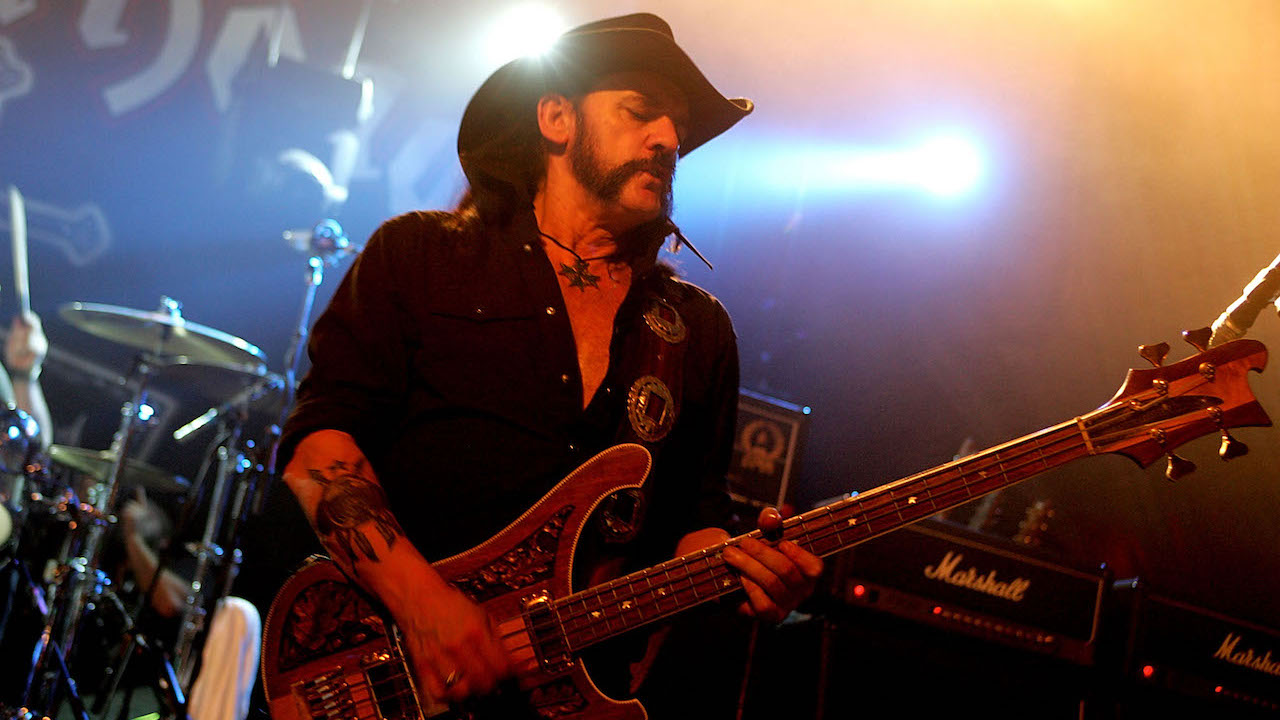“Most bass players are boring, standing at the back. I’m not like that because I was a guitarist first”: Lemmy, the godfather of heavy rock, on why he switched from guitar to bass
The Motörhead frontman switched to bass guitar while working as a roadie for Hawkwind

All the latest guitar news, interviews, lessons, reviews, deals and more, direct to your inbox!
You are now subscribed
Your newsletter sign-up was successful
From his beginnings as a guitarist and roadie, through his initial experience playing bass guitar in Hawkwind, to the leading figure in British heavy rock outfit Motörhead, the much-missed Ian ‘Lemmy’ Kilmister had done it all.
His famously filthy bass sound – not, as he revealed to us a couple of years back, the result of any effects, just wide-open mids and volume – isn’t for everyone, but for millions of Motörhead acolytes the world over, it’s nothing less than the sweetest sound ever committed to vinyl.
Lemmy switched to bass guitar while working as a roadie for Hawkwind. “Their bass player wouldn't play the free gigs as he wouldn't get paid,” he told Bass Player. “But he used to leave his bass in the gear truck, which is more or less like saying ‘please steal my gig,’ so I borrowed his bass and stole his gig. Luckily I'm enough of an egomaniac to get away with it.”
Lemmy told writer Roger Newell, “I got some good advice from the saxophone player Nik Turner before that first gig, he said, ‘Make some noises in E.’ I mean what could I do – which is E? I knew where E is on the guitar, but not on this thing. I got away with it anyway and that's where I learnt to play bass, on stage with Hawkwind.
“I really can't remember how that first gig went. I'd never played bass before and I was fucking petrified, but you learn whether you're going to be a bass player or not in that first hour and a half, believe me.
“Hawkwind were a good live band, like a black fucking nightmare. We used to lock the doors so people couldn't get out. I was in deep horror and humiliation, but I turned out to be a very good bass player.”

Lemmy's time with Hawkwind ended in 1974 following a drug bust on the Canadian border. “They never actually told me I was in the band. I was on trial for nearly four years, you know. When they fired me over that I said: ‘You can't fucking fire me because you never hired me. I quit!’ But it was great being with them. I thought we made really good albums – Hall of the Mountain Grill was the best one, and I really like Space Ritual Live, too.”
All the latest guitar news, interviews, lessons, reviews, deals and more, direct to your inbox!
Lemmy went on to form Motörhead and was at his economical peak on Ace Of Spades, starting the song with that simple, two-note riff and sliding upwards as the guitars join in.
“I didn't set out to be a bass player,” he explained. “I set out to be an accompanist and there is a difference. I notice that all these bands have the guitar solo and everything falls to pieces when the solo comes in because the guitar player stops doing the riff and that's all there was holding it. You wouldn't hear a Motörhead song fall to pieces during that three-piece era.”
In the song, Lemmy invokes all the classic heavy metal tropes – dying young, living hard, reducing life down to the turn of a card, the roll of a dice and the rattle of ice cubes against a glass of bourbon. Clichés they may be, but they were Motörhead’s clichés, and they sound so, so good to this day.
“Most bass players are boring cunts, standing at the back in almost immobile shapes. I'm not like that because I was a guitarist before I was a bass player.”

Nick Wells was the Editor of Bass Guitar magazine from 2009 to 2011, before making strides into the world of Artist Relations with Sheldon Dingwall and Dingwall Guitars. He's also the producer of bass-centric documentaries, Walking the Changes and Beneath the Bassline, as well as Production Manager and Artist Liaison for ScottsBassLessons. In his free time, you'll find him jumping around his bedroom to Kool & The Gang while hammering the life out of his P-Bass.

